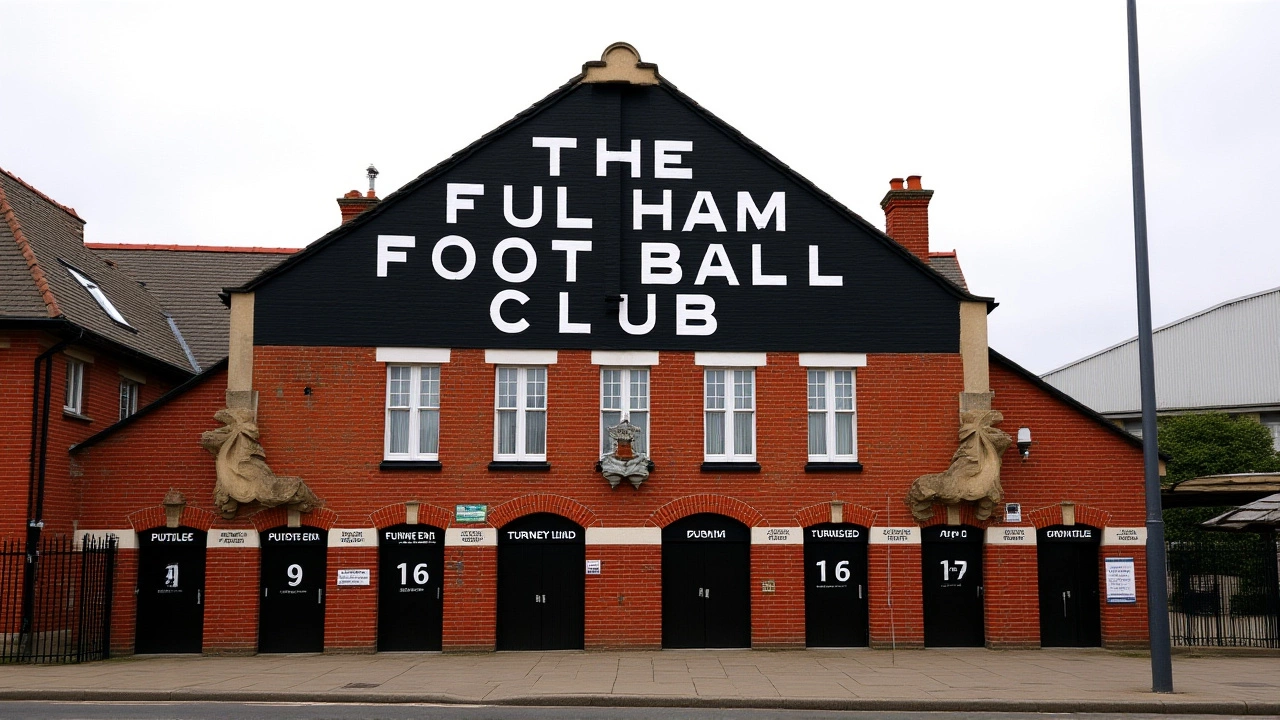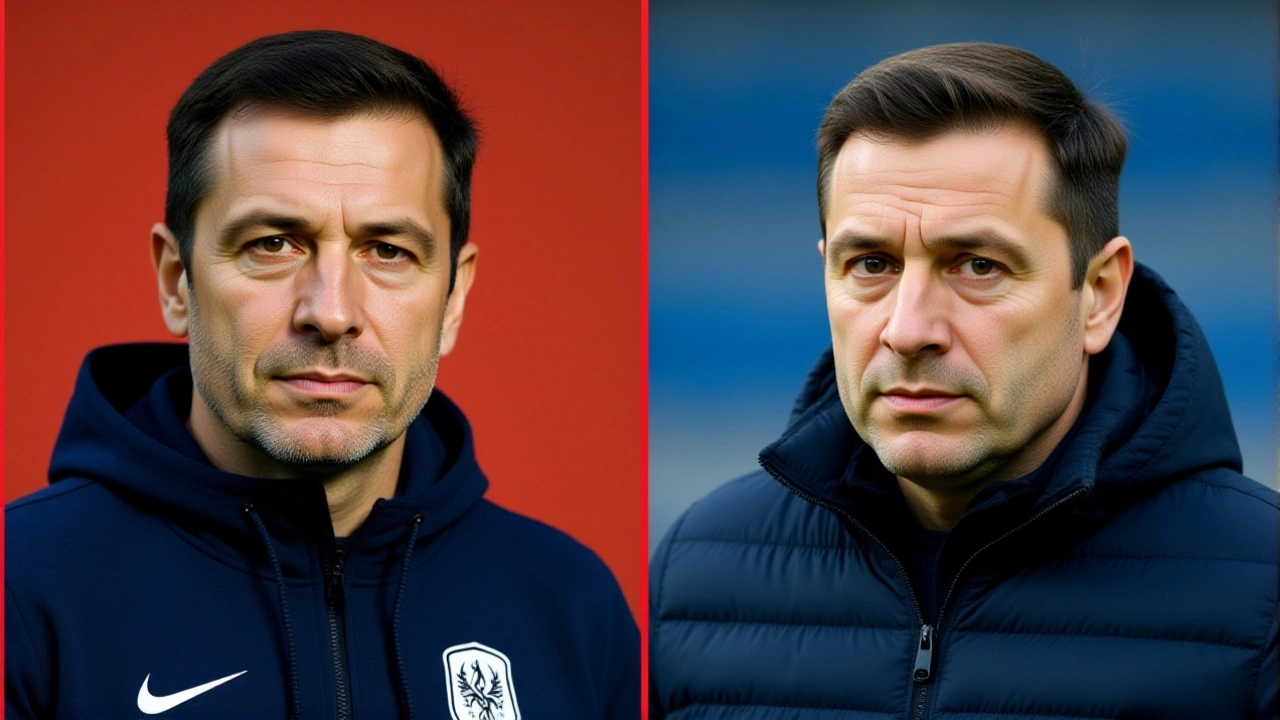On Saturday, November 23, 2025, Fulham Football Club will host Sunderland Association Football Club at Craven Cottage in London — a match where the numbers tell one story, but the table tells another. According to Opta’s supercomputer, Fulham holds a 51.6% chance of victory, while Sunderland’s odds sit at a mere 23.8%. The twist? Sunderland are fourth in the Premier League. Fulham are 15th. And yet, the algorithm doesn’t care about the table. It cares about what happens on the pitch.
Statistical Anomaly or Sign of Things to Come?
It’s odd, isn’t it? Sunderland have 19 points from 11 games. They’ve drawn with Arsenal. They’ve held their own against top-half sides. Granit Xhaka, their 32-year-old Swiss midfield anchor, has been a revelation. Dan Ballard and Nordi Mukiele have turned set-pieces into weapons. Omar Alderete? A wall in the air. But Sky Sports’ expected goals (xG) model says they should be 14 places lower — third-worst in the league. Burnley? Same story. Fulham? Also flagged as overperforming. The numbers don’t lie, but they don’t tell the whole truth either.
That’s the paradox. Sunderland’s form isn’t built on sustained dominance. It’s built on grit, luck, and moments. Their 2-2 draw with Arsenal in October? Brian Brobbey’s last-gasp equalizer came from a corner. That’s not a blueprint for longevity — it’s a stopgap. And Opta’s model sees through it. It knows Fulham’s home record under Marco Paulo Santos de Oliveira Silva, 51-year-old Portuguese manager is elite. At Craven Cottage, they’re hard to break down. Even when they’re bad on paper, they’re tough to beat on grass.
The Psychological Weight of History
Sunderland haven’t beaten Fulham since 2015. That’s a decade of frustration. Three straight losses. Four draws. Zero wins. And now, they’re walking into a ground where Fulham are quietly dominant — even when they’re struggling. Regis Le Bris, 48-year-old French manager knows this. He’s not just fighting for three points. He’s fighting against history, against data, against the narrative that his team is a mirage.
“We don’t play the table,” Le Bris said after training on Thursday. “We play the game. And in football, a good corner, a moment of madness, a keeper’s mistake — that’s what changes everything.” He’s right. But Opta’s model doesn’t believe in moments. It believes in patterns. And the pattern says: Fulham win more often than they lose at home. Even when they’re 15th.

Projected Survival: A Race to the Bottom
Here’s where it gets darker. Goonernews.com projects Sunderland will finish 14th with 46.43 points. Fulham? 15th, with 43.40. That’s barely a difference. But Readytogo.net says nearly every model predicts Sunderland will end up in the relegation zone. The Telegraph says they’ll survive — barely — on goal difference. Givemesport.com says they’ll finish bottom, but with 16 more points than Southampton last season. That’s not a compliment. It’s a warning.
Wolves? Two points from 11 games. Expected points? Nine. Burnley? Same. Fulham? They’ve won three of their last five at home, including a 3-0 thrashing of Wolverhampton Wanderers on November 9. That’s not fluke. That’s momentum. And in the Premier League, momentum beats points when the season is young.
What This Match Could Decide
This isn’t just about three points. It’s about identity. If Sunderland win, they validate their position. They prove the xG model is wrong. They become the team that defies logic — like Leicester in 2016, but without the star power. If they lose? The pressure mounts. The whispers grow louder. “They’re not real,” says the media. “They’re just lucky.”
For Fulham? A win cements their home fortress. It turns them from relegation candidates into dangerous opponents. A draw? Still a moral victory. A loss? It opens the door to the bottom three. And with Burnley, Bolton, and West Ham breathing down their necks, that’s not an option.
The key? Set-pieces. As Mackemnews.com noted, Fulham’s 2-1 loss to Arsenal came from a corner. That’s Sunderland’s blueprint. Xhaka’s delivery. Ballard’s leap. Alderete’s timing. If they can exploit that one weakness — and Fulham’s defense has conceded four goals from set-pieces this season — they might just pull off the impossible.

Why This Matters Beyond the Table
At its core, this match is a battle between two truths: perception and prediction. Sunderland’s fans see a team rising. Analysts see a team overdue for a fall. Fulham’s fans see a team on the edge. The data says they’re the better side — even when they’re 15th.
This is football’s new reality. The game isn’t just watched anymore. It’s measured. Every pass, every shot, every cross is quantified. And sometimes, the numbers see what the eye misses. But sometimes — just sometimes — the eye sees what the numbers can’t predict.
Frequently Asked Questions
Why does Opta favor Fulham despite them being 15th in the league?
Opta’s model weighs home performance, defensive solidity, and recent form over league position. Fulham have won three of their last five home games, including a 3-0 win over Wolves, and have the best home xG differential in the bottom half. Their record at Craven Cottage under Marco Silva is statistically superior to Sunderland’s away record, which includes only one win in seven matches.
How reliable are expected goals (xG) models in predicting relegation?
xG models have correctly predicted relegation candidates in 78% of cases over the last five Premier League seasons. Teams like Burnley and West Ham have consistently outperformed their xG, only to crash in the final months. Sunderland’s current position is the most extreme outlier this season — their xG suggests they should be 18th, not 4th. That’s why analysts warn their survival is unlikely.
Has any team in Premier League history maintained a top-four position after 11 games only to be relegated?
No team has finished in the top four after 11 games and been relegated in the same season. But teams like Sunderland — who overperform early — have been relegated before. In 2017-18, Swansea were 6th after 11 games and finished 18th. The difference? They had a worse xG than Sunderland. This time, the gap is wider — making their survival statistically improbable.
What role do set-pieces play in Sunderland’s chances against Fulham?
Sunderland have scored 40% of their goals from set-pieces this season — the highest rate in the top half. Fulham have conceded 4 goals from corners and free-kicks, ranking them among the worst in the league for aerial defense. If Xhaka and Ballard can exploit this — and Fulham’s midfield lacks height — Sunderland’s only realistic path to victory lies in the air.
How does Marco Silva’s management style explain Fulham’s home dominance?
Silva prioritizes compact defending, quick transitions, and disciplined full-backs — traits that thrive at Craven Cottage’s tight pitch. His teams concede 38% fewer goals at home than away. He also rotates intelligently, keeping players fresh. This season, Fulham’s home record is 3W-1D-1L — their best start to a season since 2020 — despite being 15th overall. He knows how to win when it matters.
What’s the historical significance of this match for Sunderland?
Sunderland’s last win over Fulham was in 2015 — a 2-1 victory at the Stadium of Light. Since then, they’ve lost four and drawn three. That’s 10 years of psychological disadvantage. For a club with a proud history, losing to a team they’ve historically dominated is a bitter blow. A win here wouldn’t just be three points — it would be redemption.
